UC Davis Women Empowering Generations
Celebrating local leaders this Women's History Month
It’s Women’s HIstory Month, and today we’re going to share local women’s history with the papers of Ruth E. Anderson and Tansey W. Thomas. These two trail-blazing women helped found the Women’s Resources and Research Center at UC Davis and championed for women’s rights and social justice at UC Davis and in surrounding communities.
Archives and Special Collections holds various manuscript collections — personal or family papers that are largely unpublished — from influential women in the Davis community like Ruth and Tansey. Through a range of formats such as diaries, correspondence and photographs, manuscript materials help shape the story of their lives and their impact during a specific moment in time.
Ruth E. Anderson
Ruth E. Anderson (1916-2006) served as Dean of Women and Associate Dean of Students at UC Davis from 1962 until her retirement in 1987. She was also a feminist and activist in the region. The Anderson Collection provides insight into campus history concerning women’s rights at UC Davis and the development and evolving role of the Women’s Resources and Research Center (WRRC). Other materials are also significant for the history of women’s rights activists in California.
Anderson helped establish the campus Women’s Center (now the WRRC) and the Network for Graduate and Faculty Women. She also advocated for female athletes at UC Davis and assisted in implementing Title IX, which prohibits discrimination based on sex in education programs or activities that receive federal financial assistance.
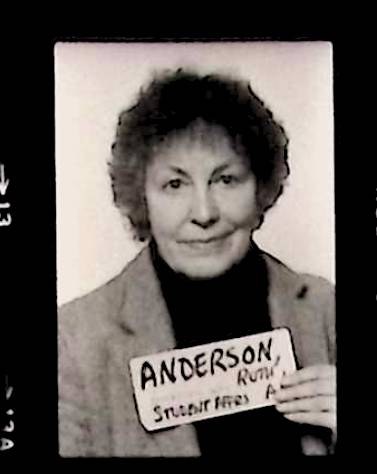
The Dean of Women (Ruth Anderson) Collection (AR-156) consists of materials related to Ruth Anderson’s work as Dean of Women at UC Davis. Some of these materials give insight into the collaborators involved in establishing the Women’s Resources and Research Center (WRRC). They also outline the center’s purpose and objectives for helping “women develop their full potential” in personal, academic and professional capacities while working across campus units to advise on “issues relating to women and sexism.”
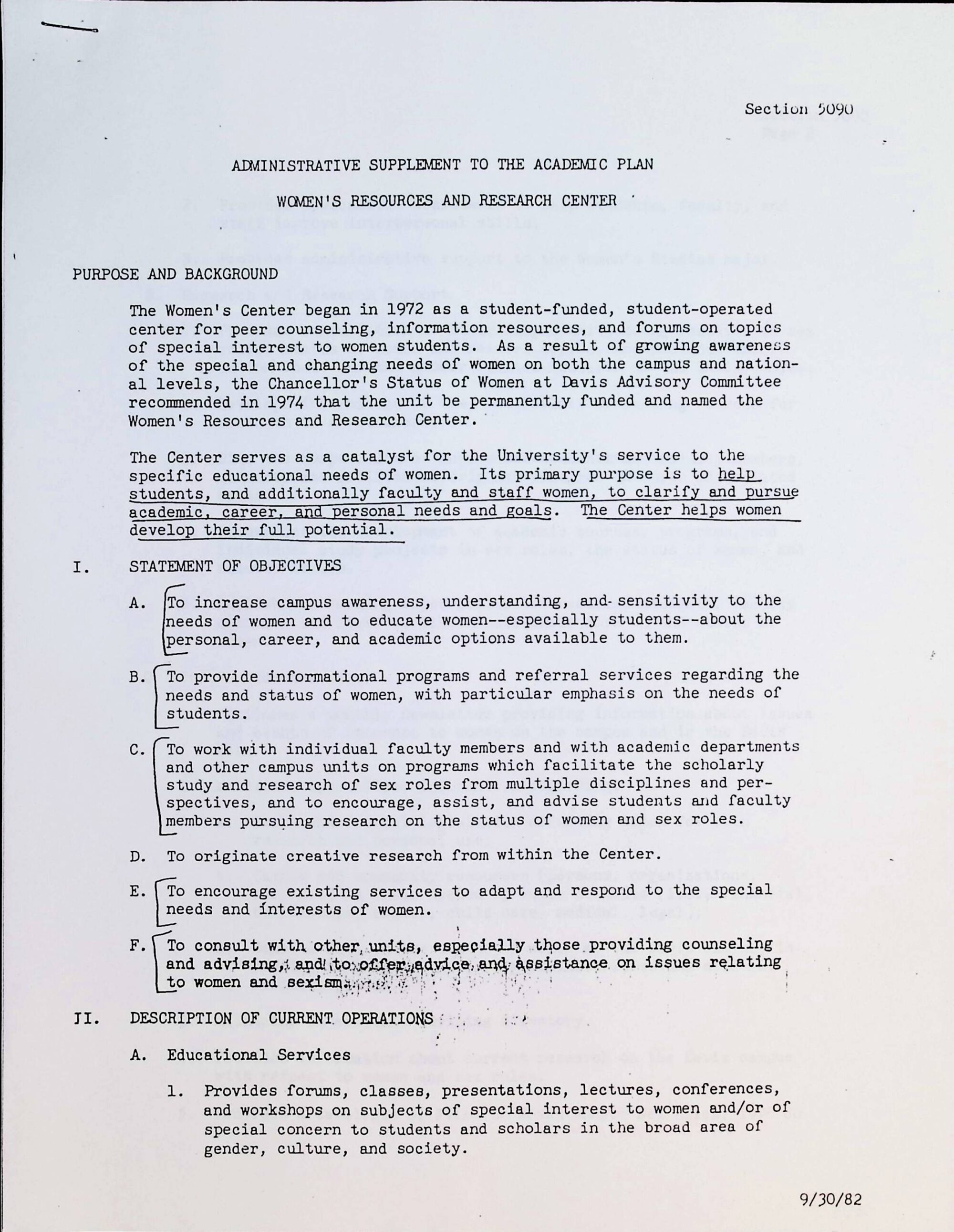
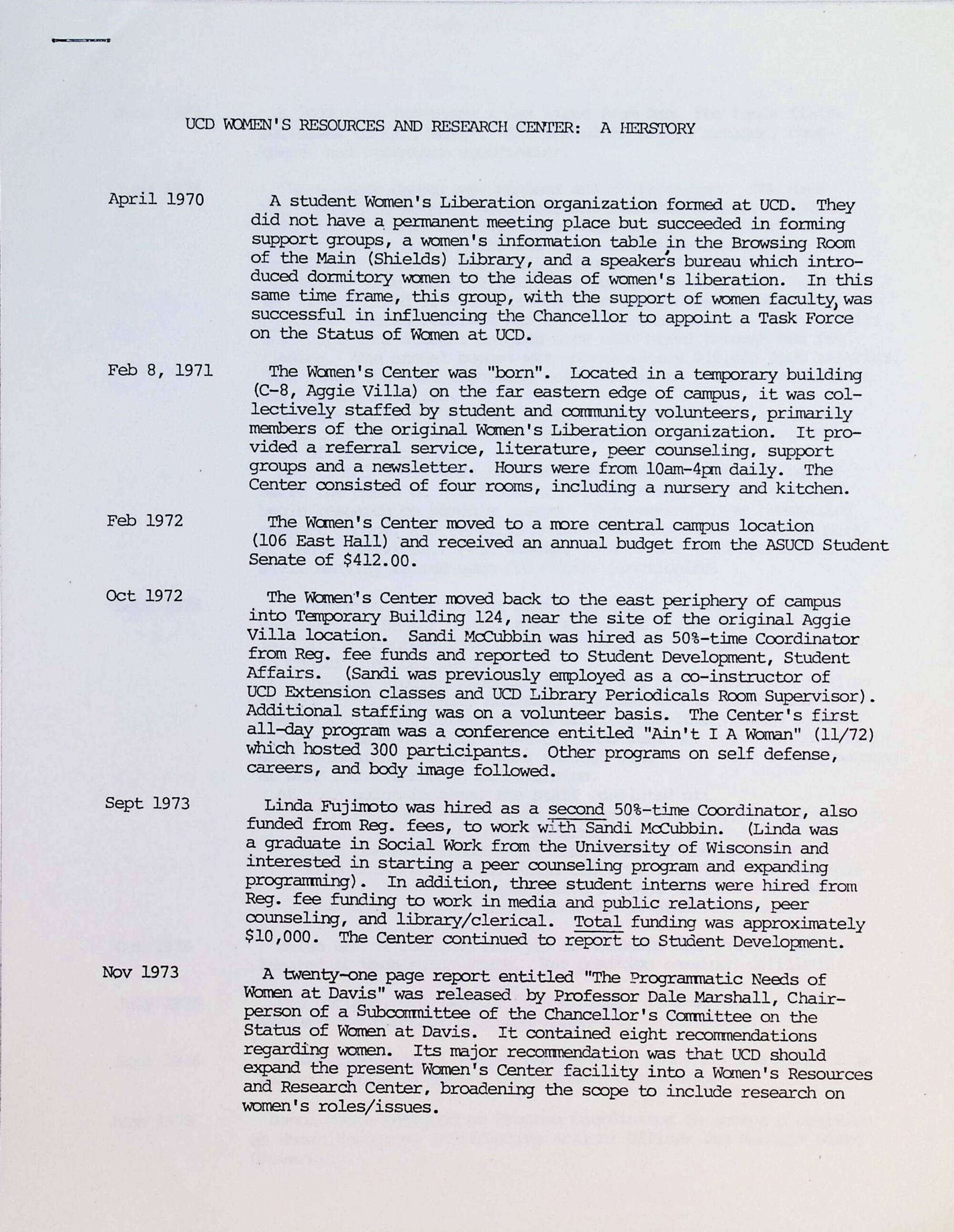
This collection also includes samples of the resources produced for UC Davis students related to women’s studies and topics that concern women’s rights. In the example below left, the Women’s Studies fall 1987 course list advocates for classes concentrated solely on women’s contributions to the humanities.
Below right, the June 1987 issue of the WRRC publication “Women’s Writes” uplifts women’s voices on campus and promotes the recipient of the Ruth Anderson Award, established in 1986-1987.
The Ruth Anderson Award [is] to be presented annually to a UCD student, staff, or faculty woman who has helped campus women realize their value, strength, and potential through her teaching, research, advocacy, or example.”
Women’s Writes, 1987
Today, the Ruth E. Anderson Scholarship is available to undergraduate students who “demonstrate financial need and are pursuing a major or minor in Women and Gender Studies; preference is for female students.”
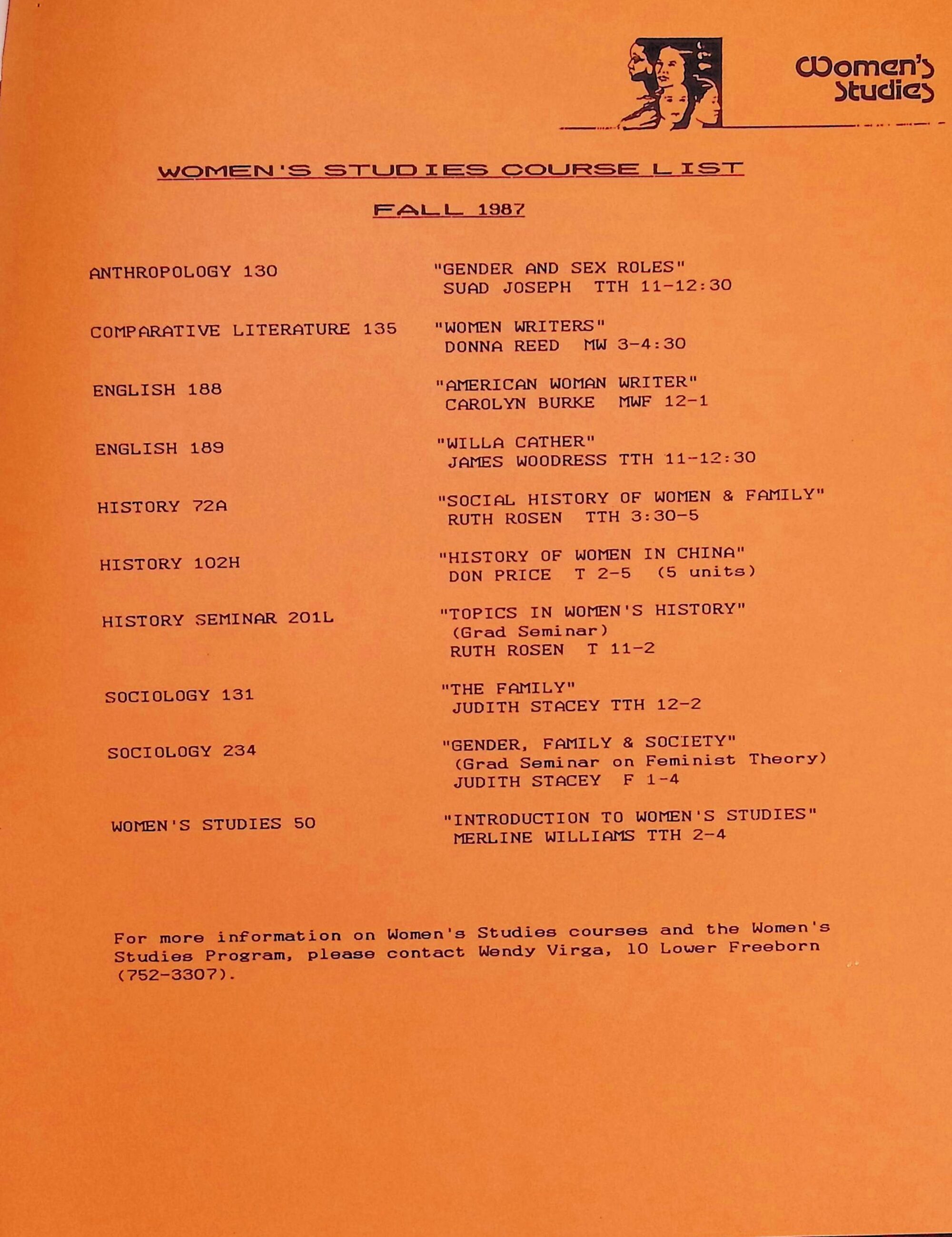
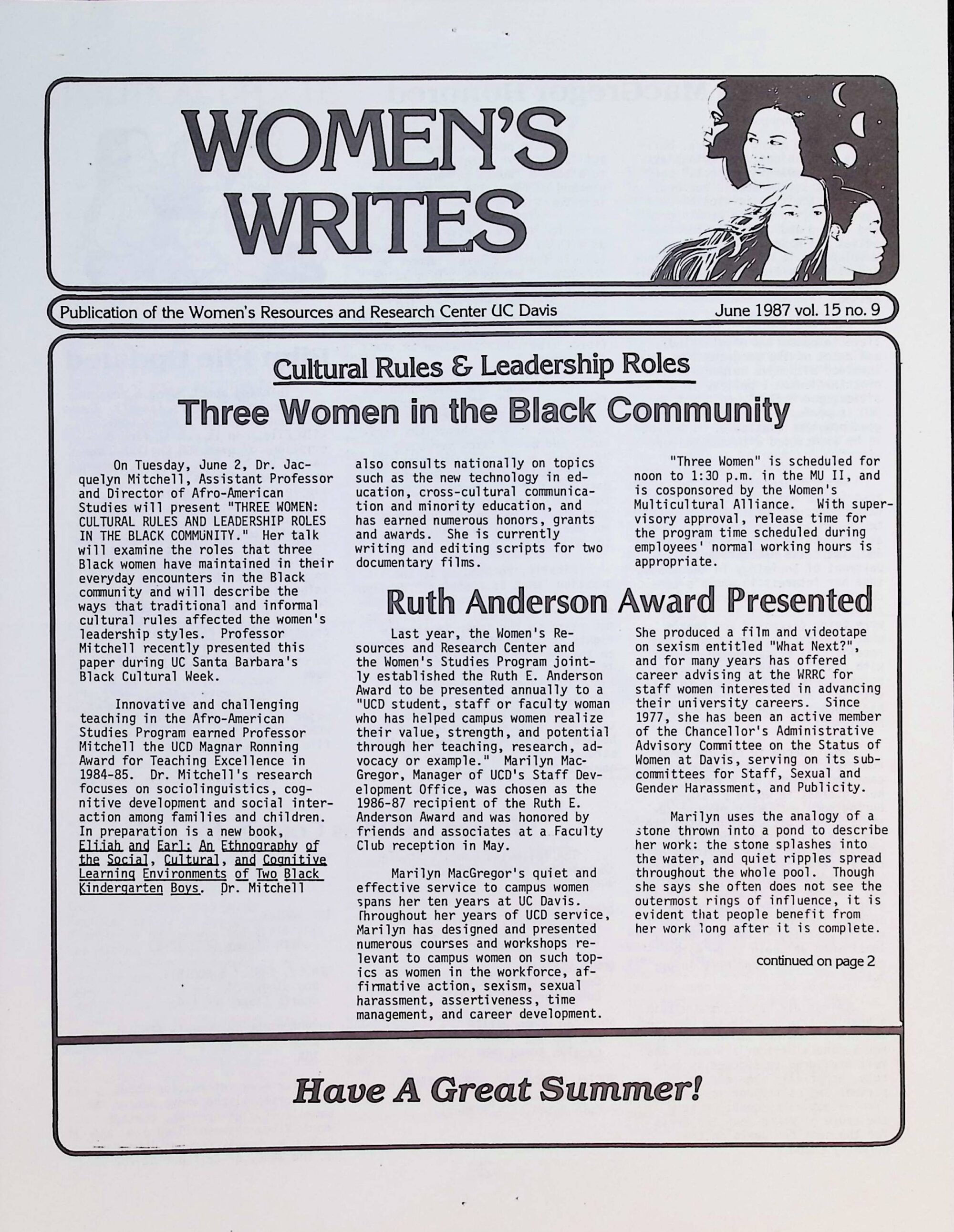
Anderson’s collection also sheds light on how she and other women on campus advocated and created resources to make parents’ experiences more equitable related to child care, women’s reproductive rights and overall well being. This 1970 “ASUCD Child-Care Center” flyer brings attention to child care options for UC Davis student parents, including the costs and hours of operations:
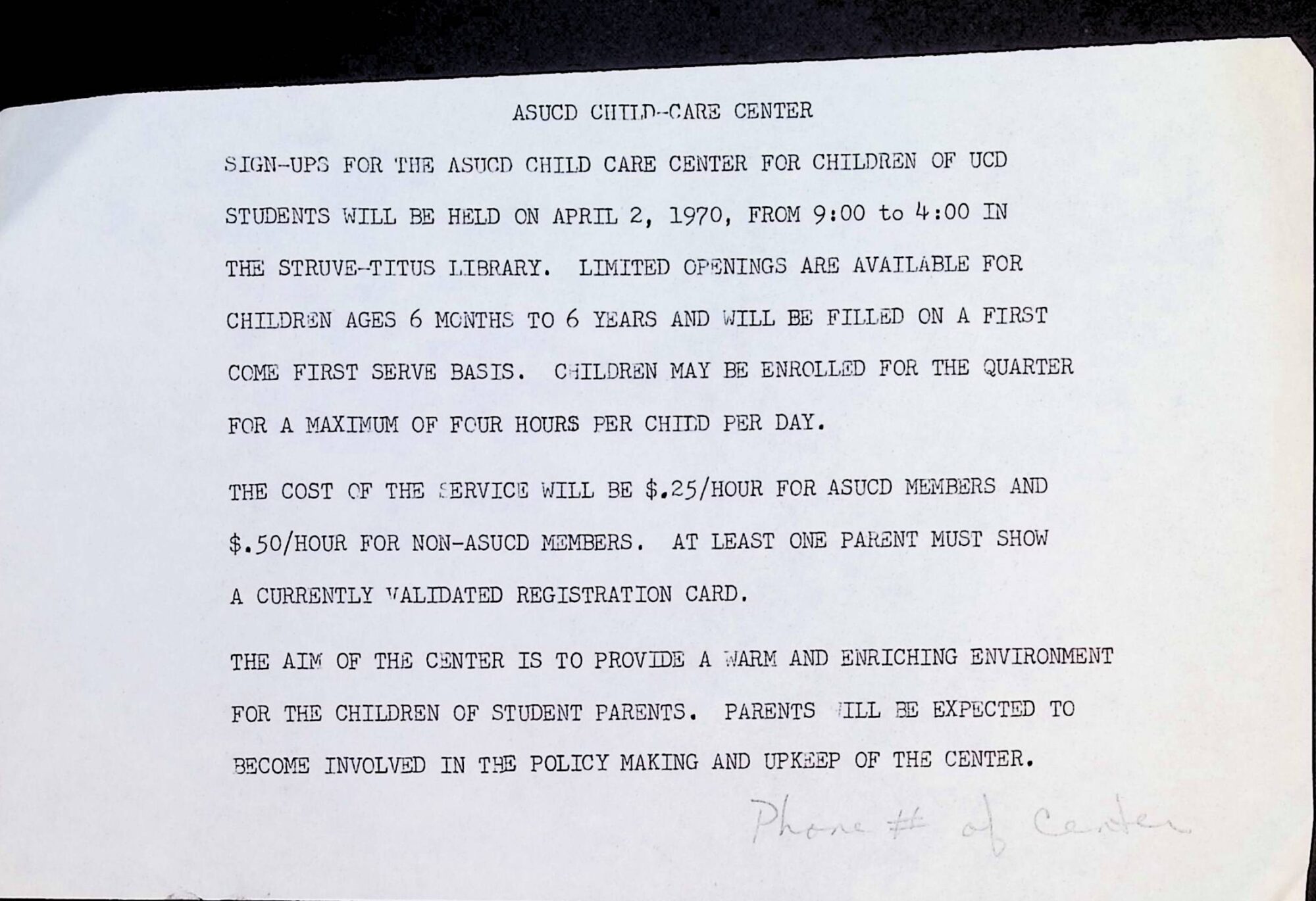
Anderson was also interested in California labor laws affecting women. The collection included a summary of those laws in 1996, prepared by the Women’s Bureau of the U.S. Department of Labor:
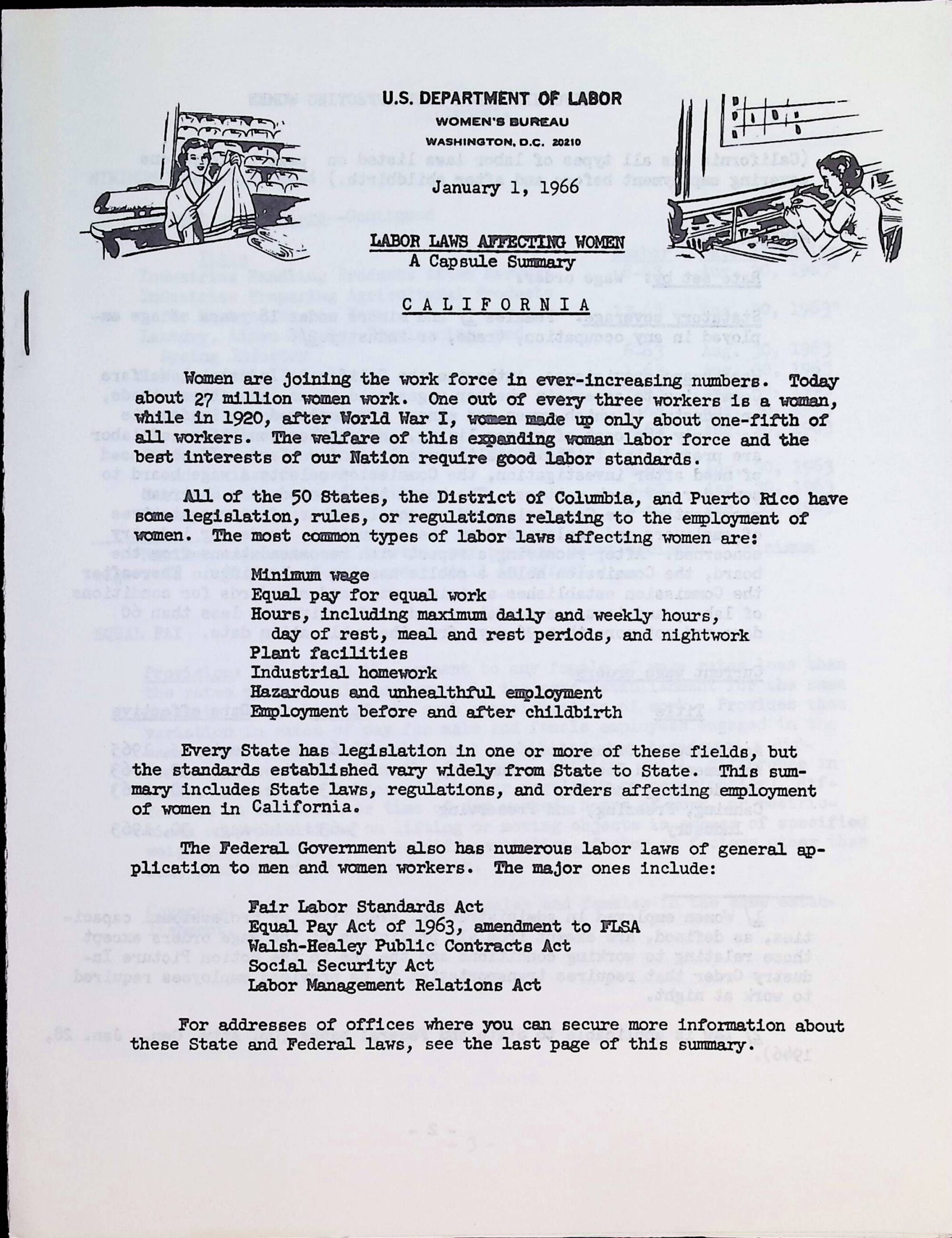
Other materials in this collection has include correspondence, daily boards, information on campus groups and committees, publications, photographs, and materials related to the Women’s Equity Action League (WEAL). Anderson’s diaries, writings, personal correspondence, and scrapbooks are also in the collection.
Tansey W. Thomas
UC Davis alumna Tansey W. Thomas (1931-2017) was a community organizer, political activist and founding member of the WRRC. Thomas devoted herself to advocating for civil rights, women’s rights, social and economic justice, and equality and fairness for all.
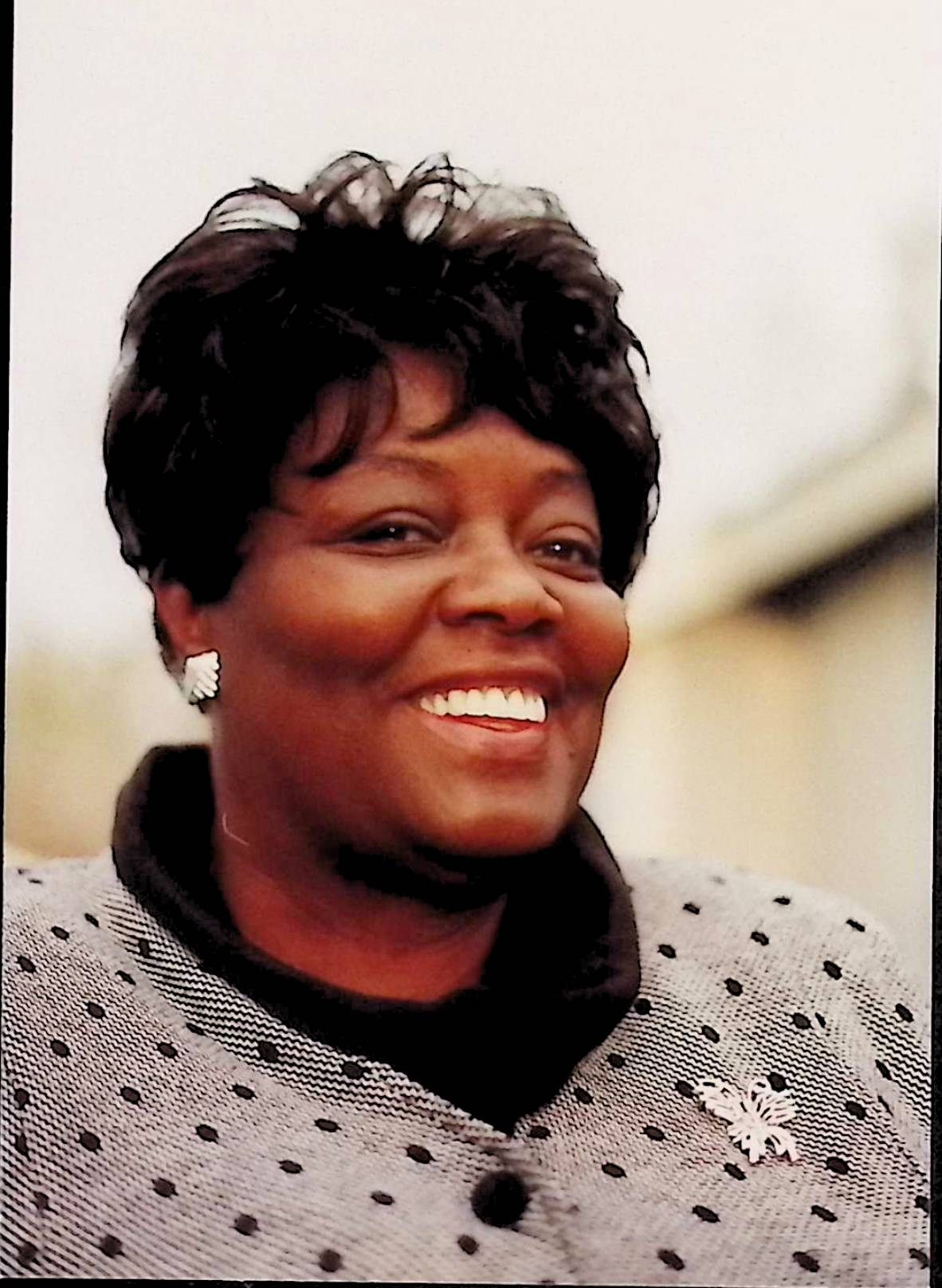
The Thomas (Tansey W.) Papers on the Status of African Americans in the City of Davis and UC Davis (D-628) contain materials that document Thomas’s life and work through correspondence, writings, posters, photographs, and other types of materials. Most of the materials in the collection are from Thomas’ years in Sacramento and Davis (1969-2017), though some relate to her early life. This collection primarily touches on race and racism at UC Davis, with some materials representing her advocacy for women’s rights.
The 1972 proposal below was for a “Minority Women” course in the Department of Applied Behavioral Science. Housed in the College of Agricultural and Environmental Sciences, the Department of Applied Behavioral Science offered courses in Ethnic Studies, Native American Studies, and Asian American Studies (now majors with their own departments in Hart Hall).
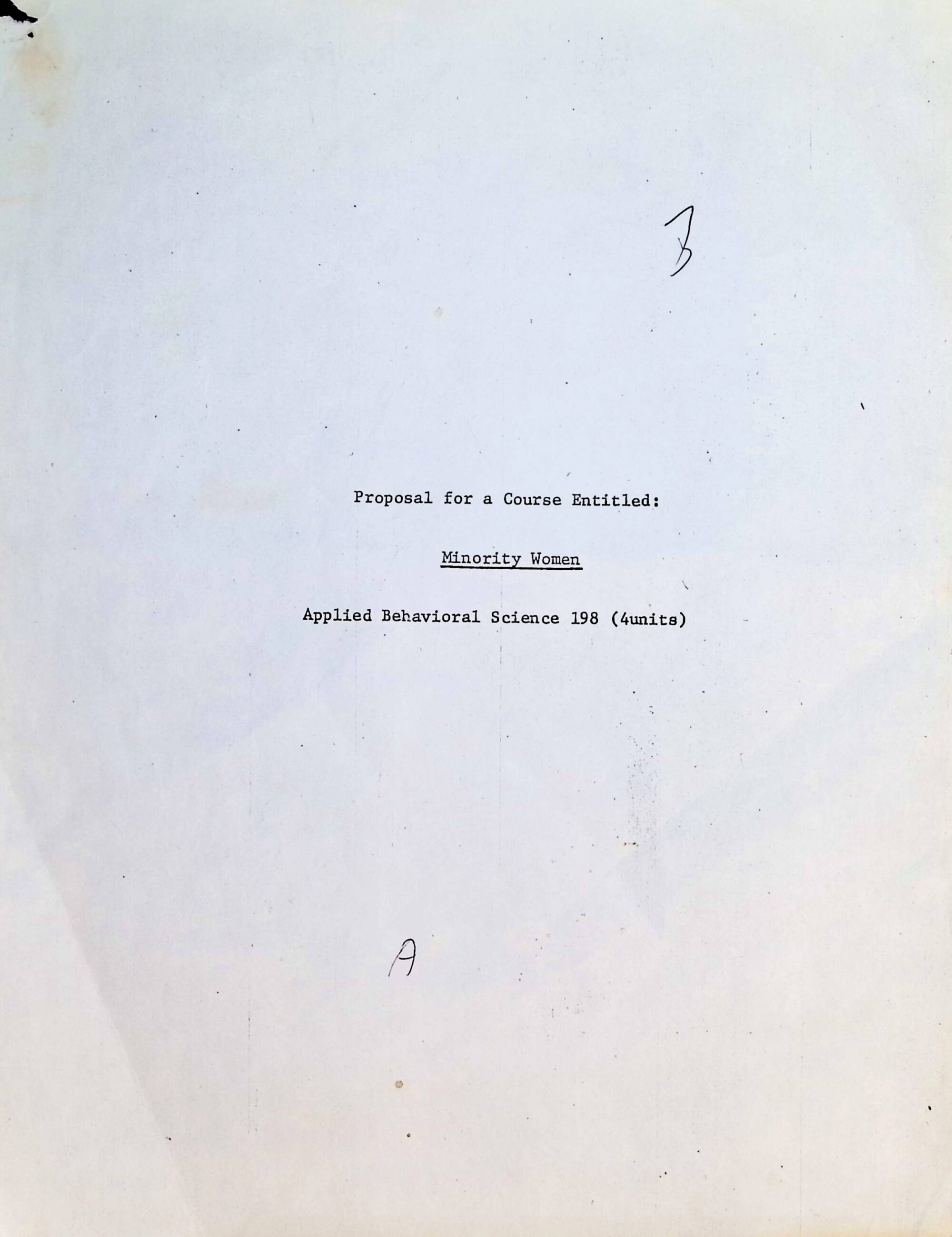
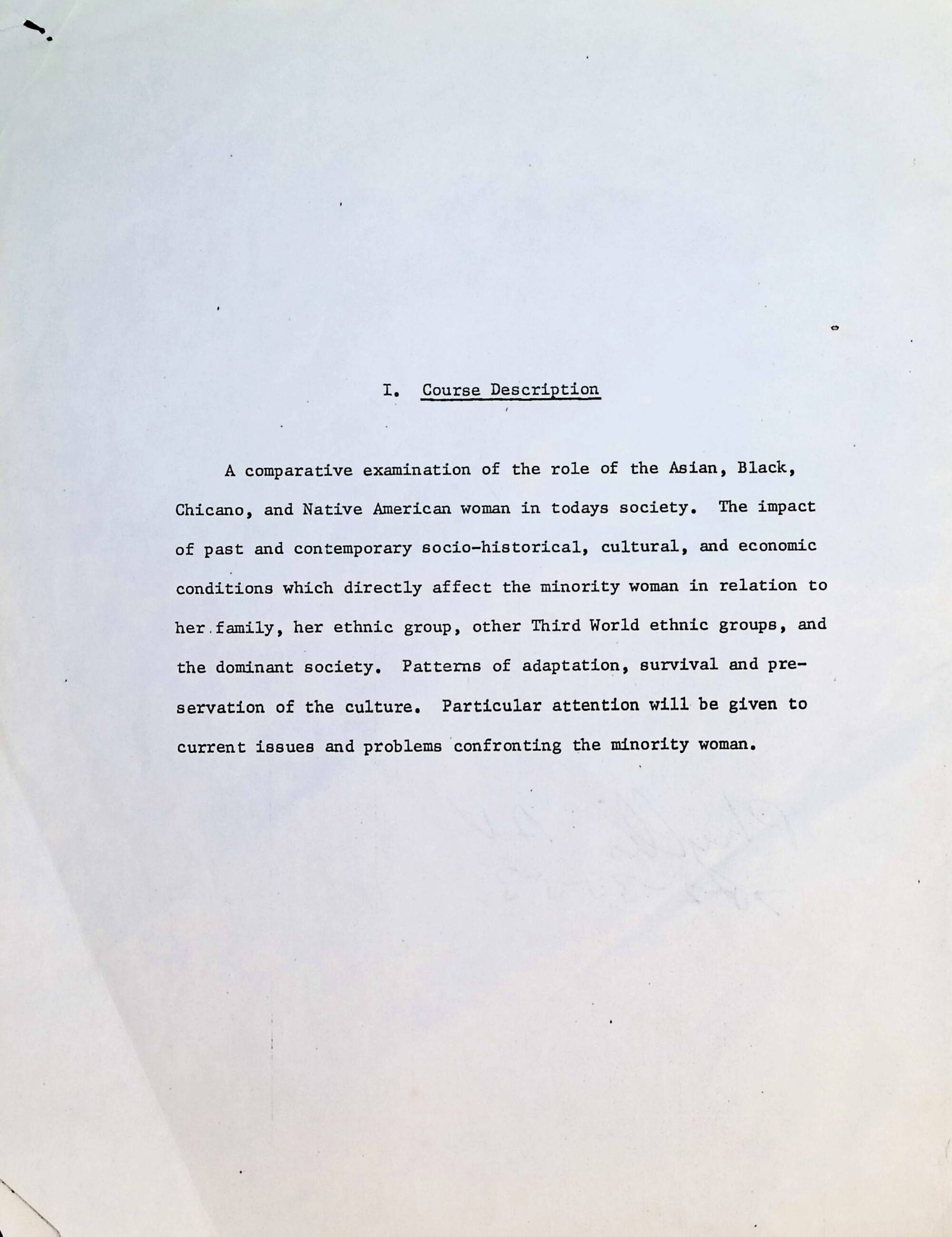
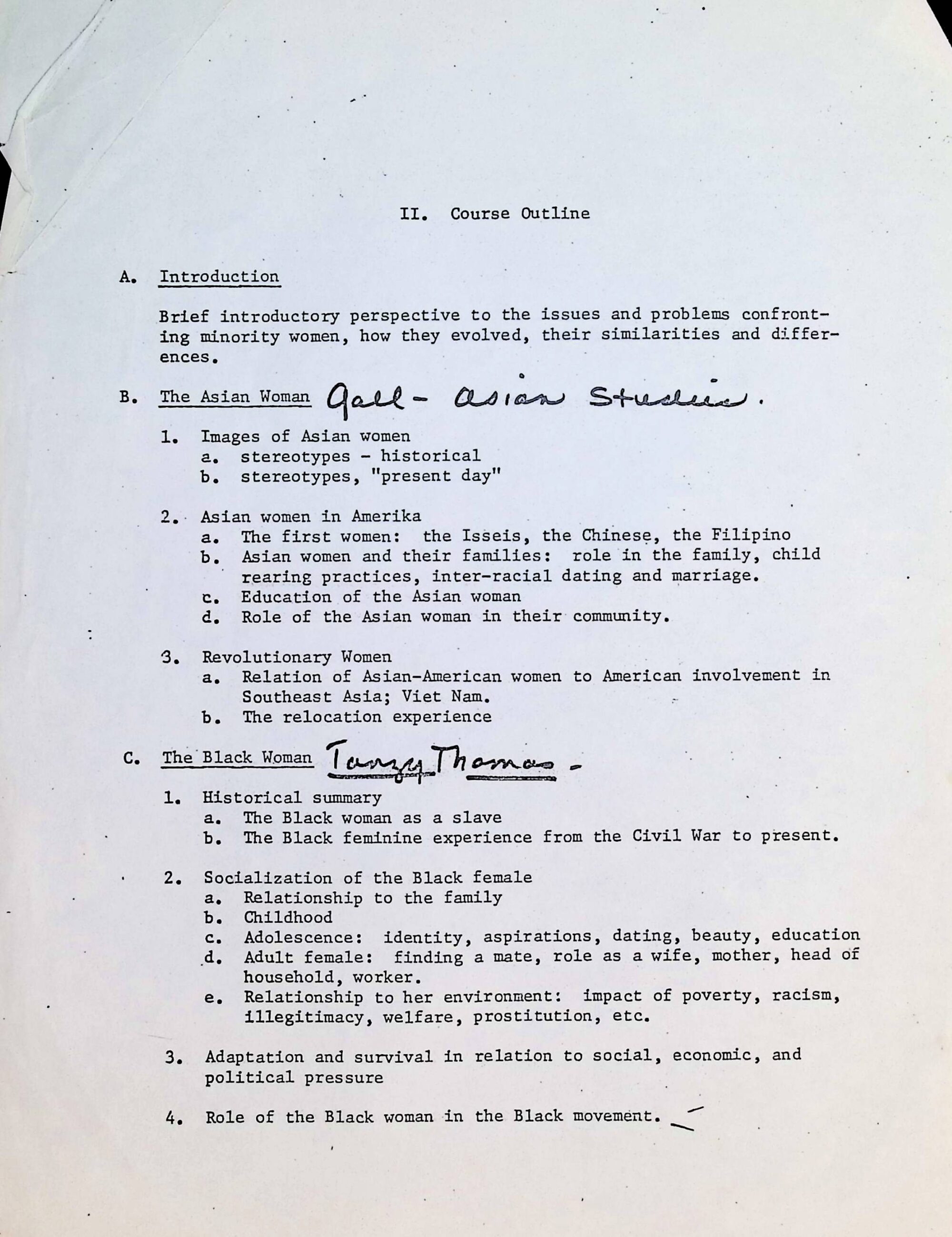
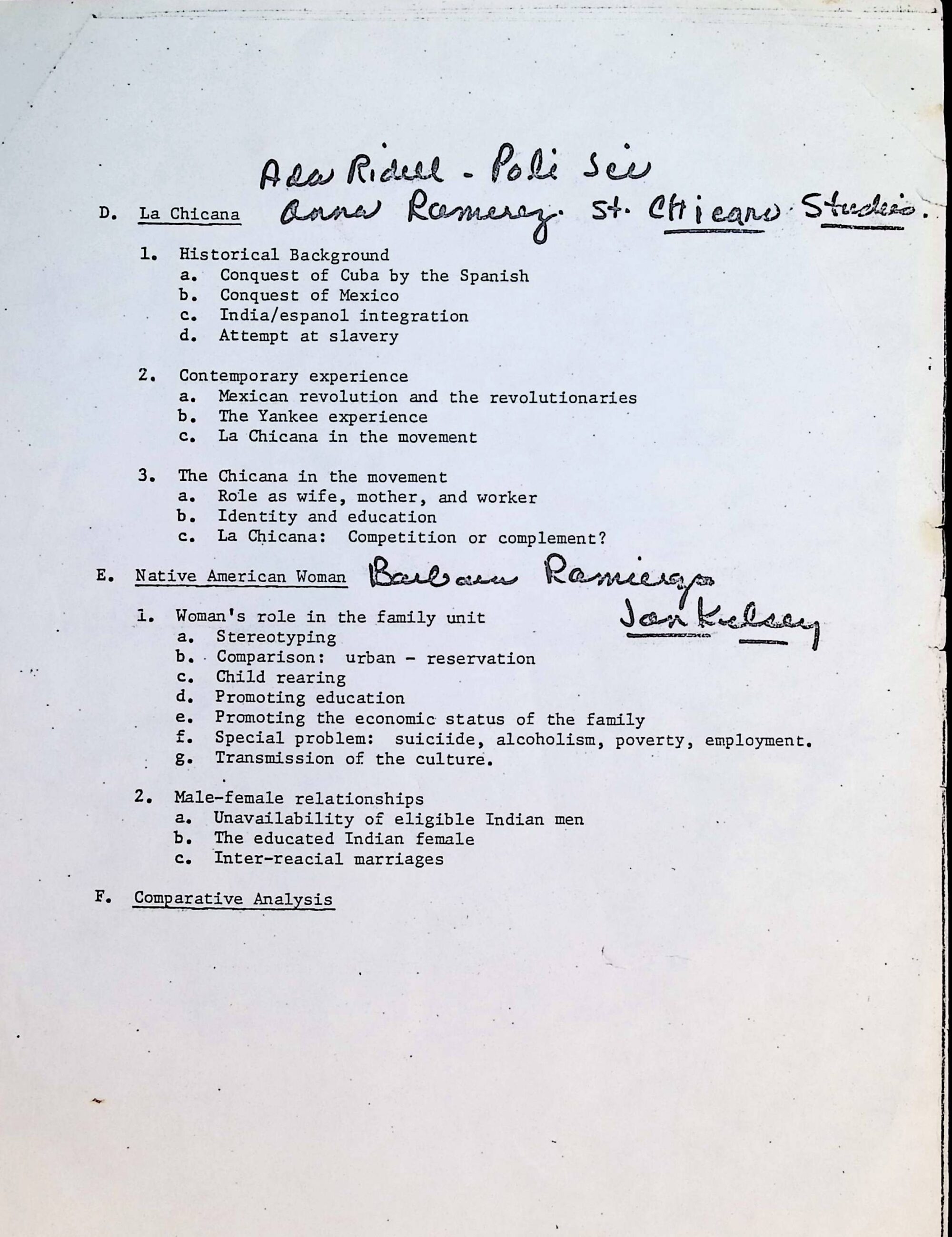
The proposed course aimed to give historical context for each group of minority women and included a critical analysis of these women’s relationships with one other and society. The course was meant to be a collaborative effort, the names of the instructors selected to potentially teach this class are written next to each topic. From the course outline, we learn that Thomas was tasked with selecting the course materials and developing the lesson plan for the lectures titled “The Black Woman.” It remains unclear whether the class was taught as it was proposed. Today, the Department of African American and African Studies offers the course “The Black Female Experience in Contemporary Society.”
This manuscript collection also contains materials on Thomas’ work with women’s rights groups in the Sacramento area. Thomas was an active participant in the Sacramento Black Women’s Network (SBWN), which helped empower and support women across the region. The SBWN provided resources for professional development, community building and companionship, including this 1987 booklet below:
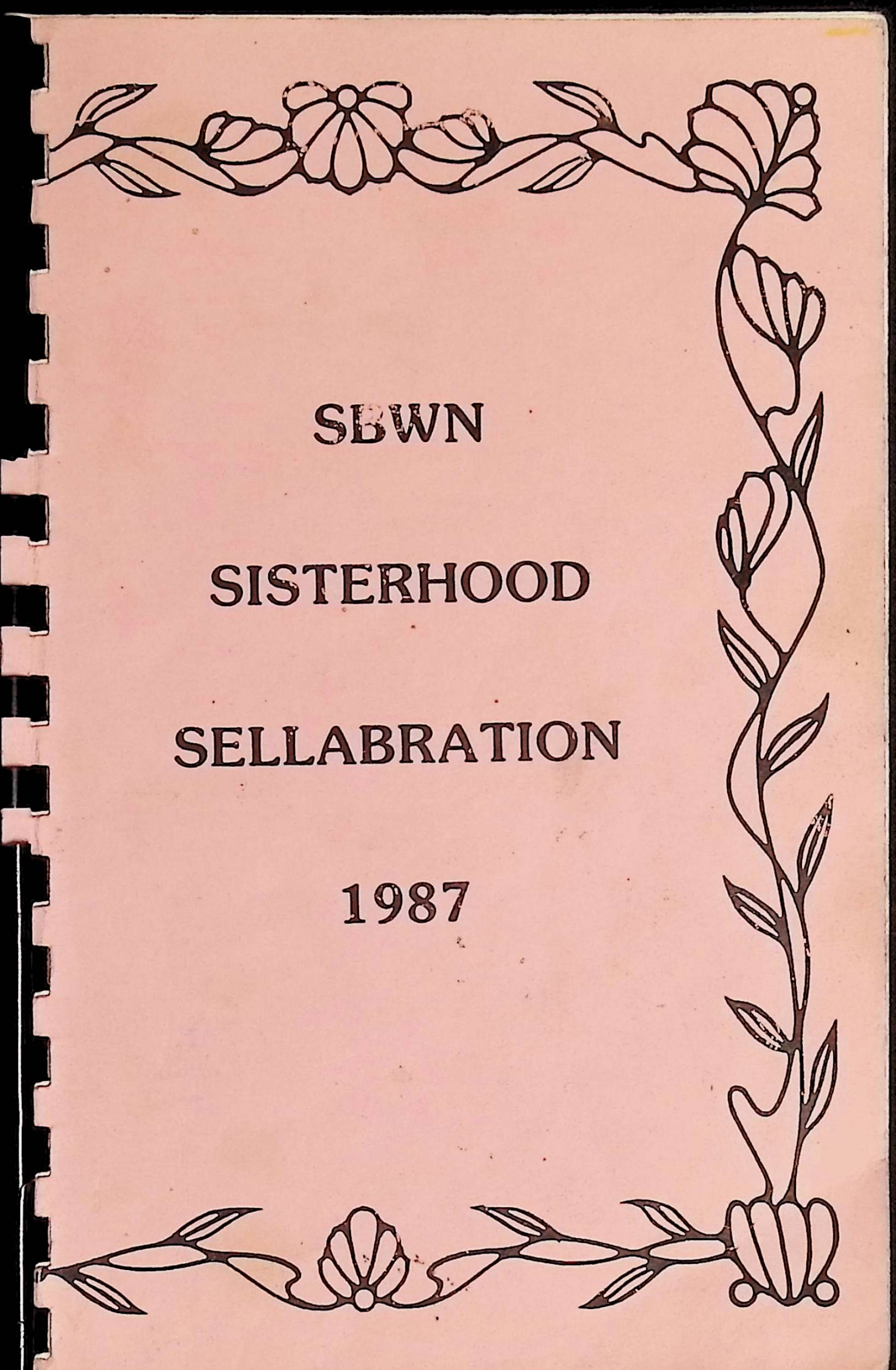
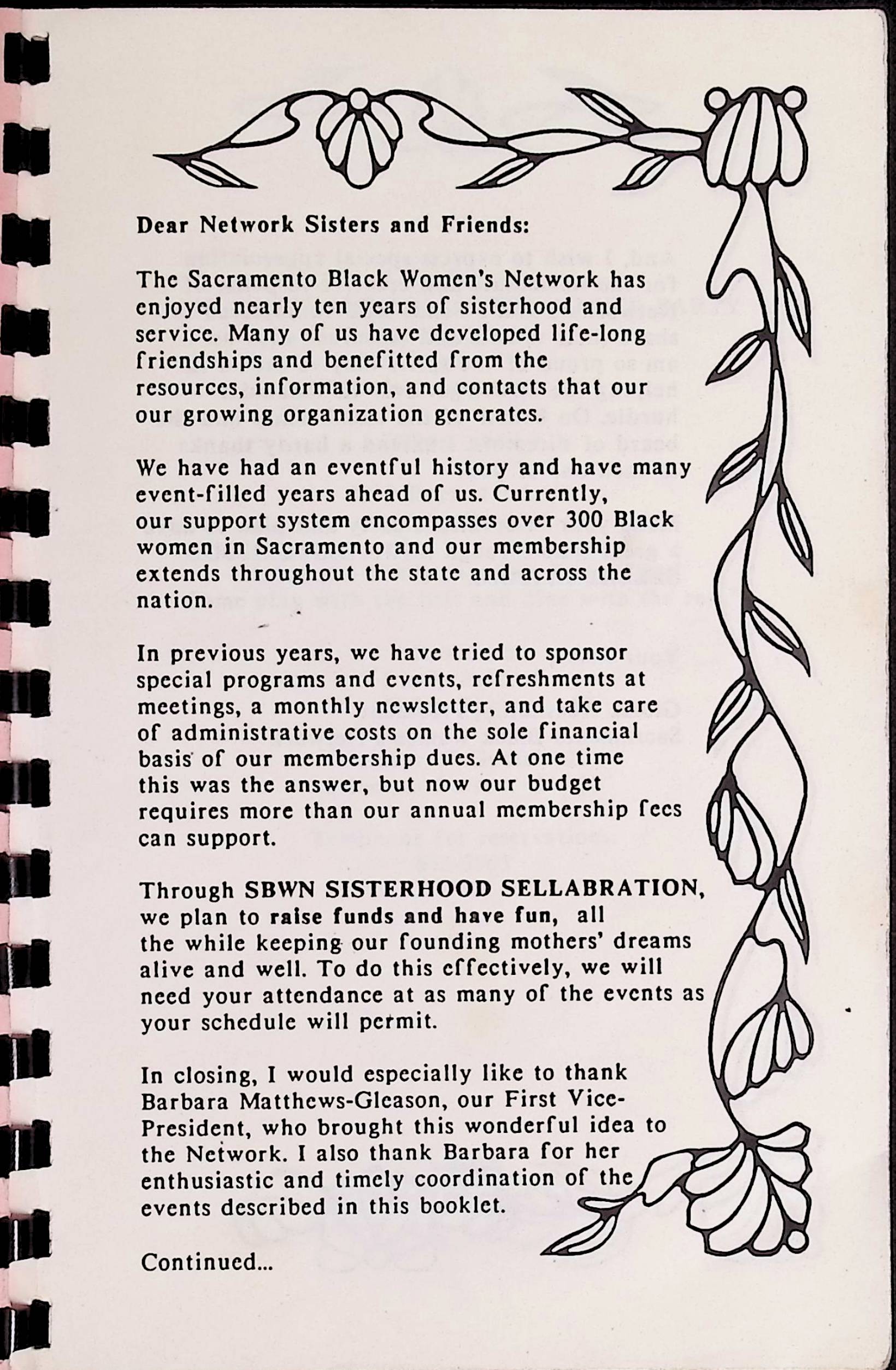
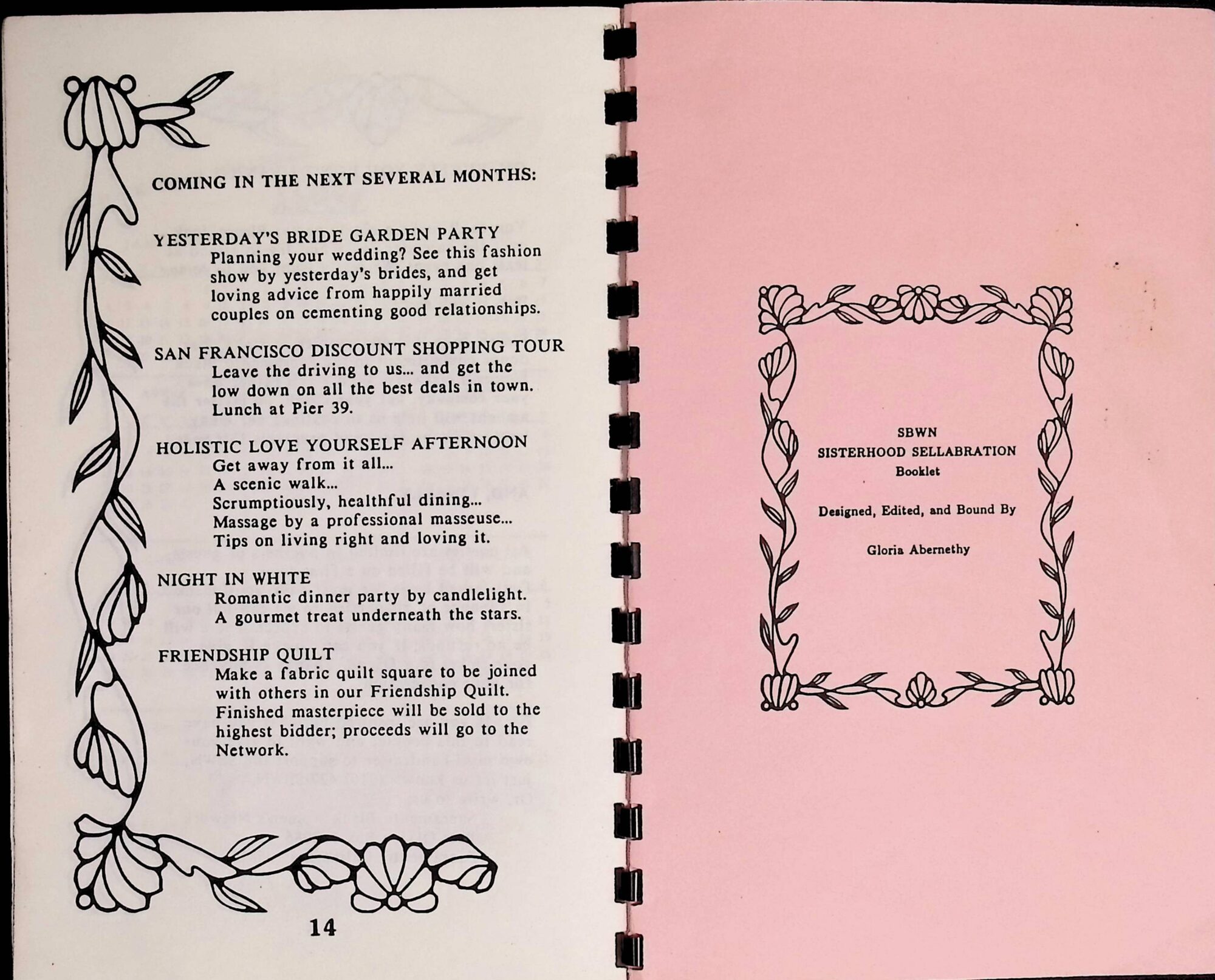
Materials from the Anderson and Thomas Collections are available to view in person in the Archives and Special Collections’ reading room. Please view this video to learn how to request materials from Archives and Special Collections before you visit, or visit this page for more information.